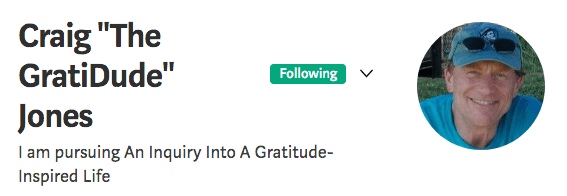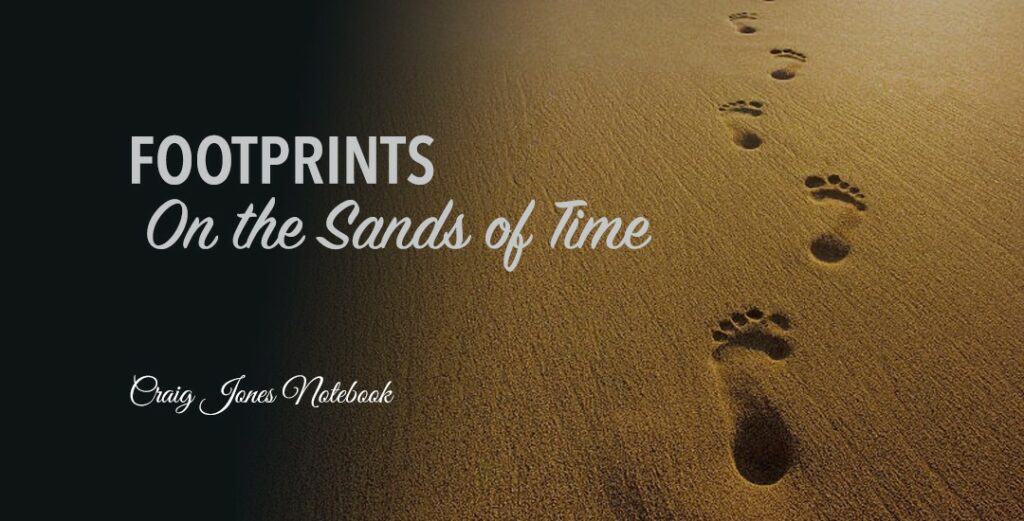Craig Jones
Columnist
The language of comparison is often a backdoor way to get at underlying truth.
If I say “Legacy is a virus,” I am using a metaphor, not unlike “All the world’s a stage.” If I say “Legacy is like a virus,” I am using a simile, akin to “Life is like a box of chocolates.”
Whichever literary device is used, viruses are not benign. The use of them to illustrate some point about the topic of legacy just doesn’t sit right, like the inclusion of Hitler in a list of history’s most influential people. However, saying he was influential is not to say he was good. Just that his impact on the world is undeniable.
But there are absolutely lessons to be learned here, once past the distaste it may leave in one’s mouth.
Experts have been telling us that the spread of COVID among us is a function of time spent with, and proximity to, infected people. There is a certain “viral load” which must be breathed in if one is to get the disease. The infected person “sheds” virus.
Tell me how that isn’t precisely the same trajectory by which one leaves a legacy.
If “legacy” is substituted for “virus,” it works perfectly. The closer we are to and the more time we spend with others, the more likely our legacy will be felt and, if you will, taken in.
We are always shedding legacy, too, as if it were a virus. We can’t not shed it.
The late David Foster Wallace said this in his 2005 commencement speech at Kenyon College.
“Because here’s something else that’s weird but true: in the day-to-day trenches of adult life, there is actually no such thing as atheism. There is no such thing as not worshiping. Everybody worships. The only choice we get is what to worship. And the compelling reason for maybe choosing some sort of god or spiritual-type thing to worship – be it JC or Allah, be it YHWH or the Wiccan Mother Goddess, or the Four Noble Truths, or some inviolable set of ethical principles – is that pretty much anything else you worship will eat you alive.”
Exactly that could be said of legacy. There’s no such thing as not having one and the only choice is what it will be. There will always be a default one, even if we just say the hell with it and let it go and not think about “what will be my legacy?” any more. In that sense, we are no more intentional than a sub-microscopic set of genetic instructions. Viruses don’t “mean” to do anything, either.
Wearing a facial covering is perhaps analogous to “hiding one’s light under a basket.” One can choose to not wear one and thus spread legacy around more easily. One can influence the lives of many people or hardly any.
One cannot stop from leaving legacy.
The real question is: What ISN’T ultimately about legacy?
It is the earth’s whole enterprise, the reason Gaia punches in every day at work. It’s what gets her out of bed in the morning. It’s the core business, so huge that it’s invisible.
In that same commencement speech, the great writer told a story. There are these two young fish swimming along and they happen to meet an older fish swimming the other way, who nods at them and says, “Morning boys. How’s the water?” And the two young fish swim on for a bit, and then eventually one of them looks over at the other and goes, “What the hell is water?”
That’s legacy, all around us. One useful definition of legacy is “anything handed down by an ancestor or predecessor.”
Anything?
How about the contrail left feathering out behind a 747? The slick slime after a slug? The tomatoes, cucumbers and beets that were overflowing in our summer garden? Were they not legacies of seeds?
There are all kinds of legacies, some that could be called positive assets in the whole life ledger, some rather less so. Legacies of DNA, legacies of philosophy, and legacies of childhood faith practice that have dyed one’s soul are more examples.
There’s the legacy of loss, as well, like the untimely death of my father when I was five.
Edward Abbey wrote in Desert Solitaire about having a gas refrigerator. “Not indispensable,” he noted, “but useful. It is in fact one of the few positive contributions of scientific technology to civilization, and I am grateful for it. Every time I drop a couple of ice cubes into a glass I think with favor of all the iron and coal miners, bargemen, railroaders, steelworkers, technicians, designers, factory assemblers, wholesalers, truck drivers and retailers who have combined their labors (often quite taxing) to provide me with this simple but pleasant convenience, without which the highball or the Cuba libre would be poor things indeed.”
What is that but legacy?
I have some great new stuff to wear this winter because our friend died a couple of summers ago and his wife gave them to me and they fit. Zip up hoodies, warm vests, an almost unworn LL Bean winter coat, windbreakers for several different temperature extremes, even a couple of nice shirts. I like wearing them and think about him whenever I do.
Legacy, for sure.
In America we live with all this freedom and last month celebrated Veteran’s Day when we’re challenged to think about how we don’t have all this without the deaths of thousands and thousands of American GIs throughout our history. The War in the Pacific was predicated on the dead bodies of tens of thousands of those GIs lying in rows on the beaches, for example, but because of them we have what we have today.
Legacy, no question.
Someday I will put on one of Richard’s vests and no longer be thinking about him. It might have a Rorschach coffee stain and maybe a zipper won’t work anymore and I’ll be pissed off and call it a piece of shit. I will most certainly take for granted living in America and get caught up in partisan divisiveness. I know for sure that Abbey took his refrigerator in the desert for granted most of the time.
Here we are once again at Christmas and Hanukah, living in the year-long shadow of a deadly pathogen, with no end in sight. Here we are, once again, shedding a legacy whether we mean to or not. It’s a challenge to figure this all out. We want to say, “I was here.” We want to leave paintings on the wall of the cave. We want to have done some good, made a difference.
Good maybe to reread our Longfellow along with our Gospel of Luke this season.
“Lives of Great Men all remind us, we can make our lives sublime, and, departing, leave behind us, footprints on the sands of time.”
Read more of Craig Jones and his “GratiDude” HERE

